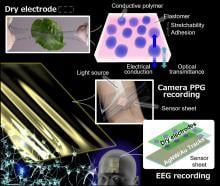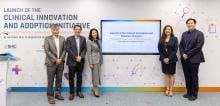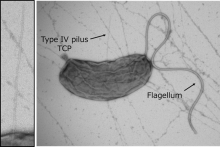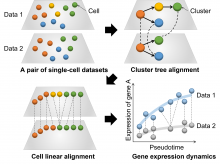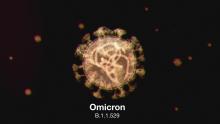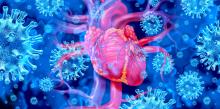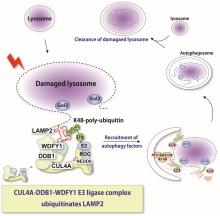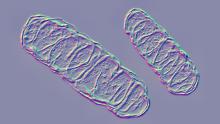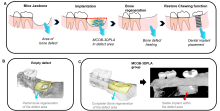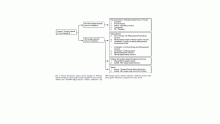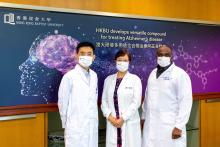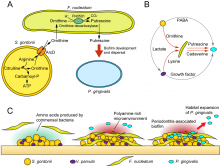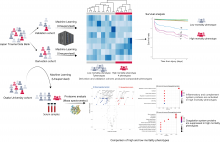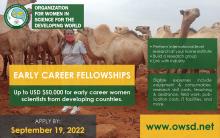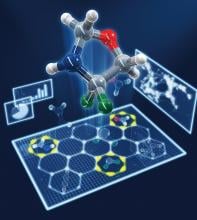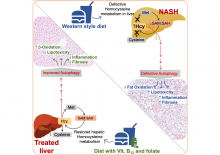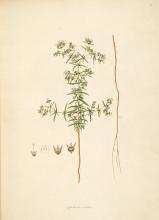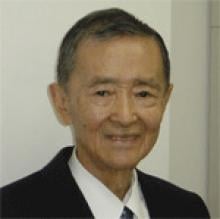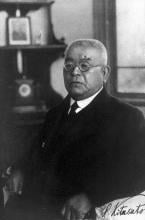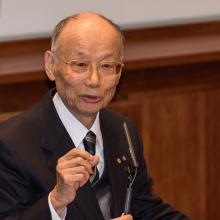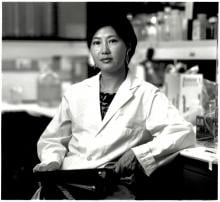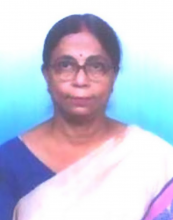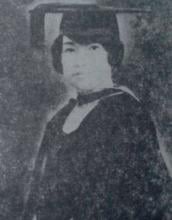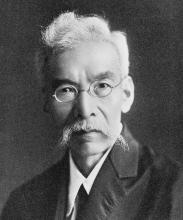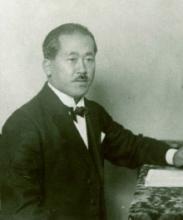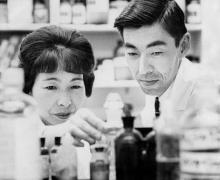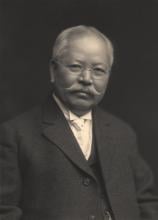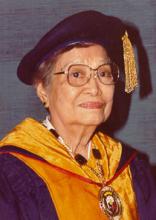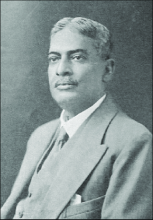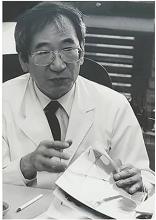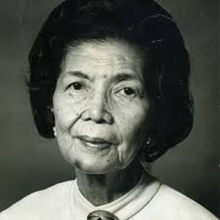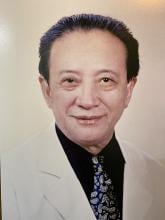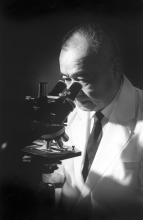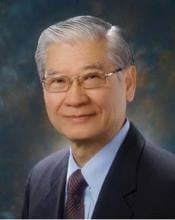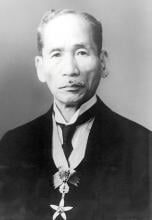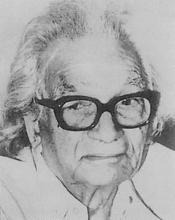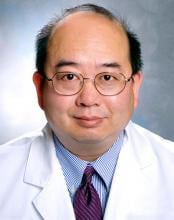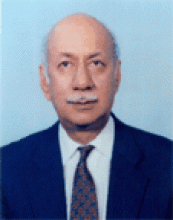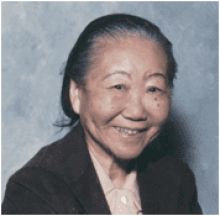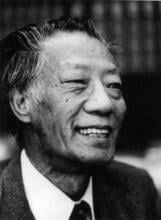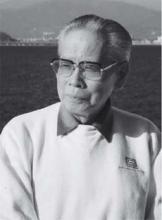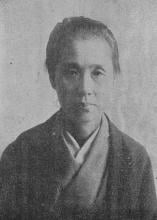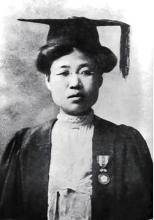Medicine
News
17 Oct 2022
Researchers from Osaka University have developed a skin-like device to measure brain activity via electroencephalography, which uses electrodes to measure electrical activity on the scalp (reflecting underlying brain activity). The device has other useful applications, such as measuring heart rate and blood oxygen levels. Wearable devices that can remotely assess brain health in everyday settings are likely to improve healthcare for millions of people worldwide.
17 Oct 2022
Researchers from Osaka University have shown that deficiency of the protein Favine can lead to accelerated development of atherosclerosis. Loss of Favine in a mouse atherosclerosis model also led to calcification and thrombus development in the blood vessels of the mice. Prior to this, no mouse models for calcification or thrombus formation existed, hindering atherosclerosis research. This work also identifies Favine and its downstream signaling pathway, known as MEF2C-KLF2, as potential therapeutic targets for atherosclerosis.
17 Oct 2022
The National Health Innovation Centre, Singapore (NHIC) has launched a Clinical Innovation and Adoption Initiative to nurture promising healthtech projects for adoption and scaling across healthcare clusters in Singapore.
14 Oct 2022
Researchers from Osaka University have found that the Vibrio cholerae colonization factor TcpF forms a flower-shaped trimer to specifically bind to the minor pilus protein TcpB resulting in secretion by the type 4 pilus secretion system into the extracellular space. This finding could help lead to the development of a novel anti-adhesive drug that selectively interrupts the TcpF-TcpB interaction, which may replace antibiotics in the treatment of cholera.
14 Oct 2022
Researchers from Osaka University have developed a computational analysis tool called CAPITAL for comparative analysis of single-cell RNA sequencing data with complicated branching trajectories. As cells undergo a dynamic process, they can be placed on a “pseudotime trajectory” to analyze the gene expression changes throughout the process. While previously only straightforward linear trajectories could be compared, CAPITAL is proven to be able to accurately compare branching trajectories, significantly advancing the field of high-throughput single-cell sequencing.
10 Oct 2022
The SARS-CoV-2 Omicron variant escapes the immune response better than its coronavirus ancestors, but has also facilitated our transition to a society that can live with COVID-19.
06 Oct 2022
Researchers from Osaka University have found that serum albumin interferes with β2m amyloid fibril formation through macromolecular crowding. Monitoring serum albumin concentrations could therefore help prevent patients from developing dialysis-related amyloidosis, a serious complication of long-term dialysis.
29 Sep 2022
Linked lanthanides shine light on crystal engineering, New technique reveals hidden genome, Red, white and blue alerts for dangerous bacteria & Windows gain competitive edge over global warming. Read all in the September's Editor's Choice plus this month's Asia Research News 2022 magazine pick - Floating sensors to gather ocean data.
22 Sep 2022
A pathway that malfunctions in advanced non-alcoholic fatty liver disease could be fixed with the aid of spermidine, a compound naturally found in bodily cells and certain whole foods.
22 Sep 2022
Scientists have uncovered how Coxsackievirus B3, the most common cause for viral heart inflammation, takes advantage of a specific heart sensor to trigger chronic inflammation that can lead to heart failure.
16 Sep 2022
Osaka University researchers identified the specific protein complex that recognizes when cellular organelles called lysosomes become damaged. When this occurs, the CUL4A protein complex transfers a molecular tag, called polyubiquitin, to a lysosomal protein known as LAMP2. WDFY1, another protein in the complex, is able to recognize and interact with LAMP2. These initial steps are critical to beginning a process called lysophagy, in which these damaged lysosomes are cleared away by the cell.
15 Sep 2022
Cellular structures called mitochondria depend on microproteins to assist and control the assembly of a protein chain that extracts energy from nutrients, according to a new study by scientists in Singapore.
13 Sep 2022
A commentary in Nature Medicine advocates the proper application of artificial intelligence in healthcare and warns of the dangers when machine learning algorithms are misused.
13 Sep 2022
An estimated 1208 excess suicide deaths for men and 1825 for women were recorded during the COVID-19 Pandemic in Japan through December 2021, with the impact being greatest in women and younger age groups.
09 Sep 2022
While the primary site of SARS-CoV-2 infection is in the nose, most antiviral immunity studies have been performed with peripheral blood. T-cell analysis of nasal swab samples suggests getting infected with SARS-CoV-2 following vaccination could confer potentially more robust, nasal-based immunity.
30 Aug 2022
Tohoku University scientists in Japan have made a scaffold that supports the growth of new bone in large jaw defects in mice. Their findings, published in the journal PNAS Nexus, bring scientists one step closer to addressing the issues currently facing the treatment of large jaw bone defects, especially in the elderly.
26 Aug 2022
Researchers have made perovskite solar cells more efficient and stable, A new cause of Parkinson's related cell death, Hibernating superpower is in the blood, Common mechanism for cancer and atherosclerosis, COVID-19 antibody skin-based test. Read all in the August's Editor's Choice plus an Interview with Prof Sutee Yoksan on The story behind the new dengue vaccine & this month's Asia Research News 2022 magazine pick - The evolutionary history of puddle frogs.
25 Aug 2022
Giants in History: The first Thai woman to receive a degree in medicine, Margaret Lin Xavier (29 May 1898 – 6 December 1932), is best remembered for her compassion towards her less privileged patients.
25 Aug 2022
Immunity in Chronic Hepatitis B and innovative treatment development
24 Aug 2022
A group of researchers in Thailand has replicated "Hydroxy-xanthones", the vital extracts rich in antioxidants found in mangosteen peels that kill germs and halt infections in the intestinal mucosa. It hopes to expand to include health products for humans and animals in the future.
24 Aug 2022
A study led by researchers from Hong Kong Baptist University (HKBU) has demonstrated that a multifunctional organic compound named F-SLOH has the potential to treat Alzheimer’s disease (AD) at an early stage. The team found that it can inhibit the aggregation of amyloid-beta (Aβ), and reduce the hyperphosphorylation of tau proteins and neuroinflammation in the brain to improve the pathological features of AD. The findings have been published in the international academic journal Redox Biology.
23 Aug 2022
Takeda’s tetravalent dengue vaccine (TAK-003) is now the only dengue vaccine approved in Indonesia for use regardless of previous dengue exposure and without the need for pre-vaccination testing. This approval marks Takeda’s first marketed vaccine outside of Japan.
22 Aug 2022
Researchers led by Osaka University shed light on a metabolic network integrated by an oral microbe Fusobacterium nucleatum (F. nucleatum). Analysis of co-cultures of F. nucleatum with other commensal oral bacteria revealed that metabolic cross-feeding enables F. nucleatum to increase the production of the polyamines putrescine and cadaverine, thereby promoting the development of periodontitis. The nutritional interactions of F. nucleatum may serve as potential targets for the development of new methods to prevent periodontal disease.
19 Aug 2022
Adults self-report their pain on a one to 10 numerical score, while children can point to an equivalent face scale — from a green smiling face to a red crying face — to indicate their pain. Newborns, however, cannot say a number or point to a face, leaving it up to their caregivers to identify and evaluate any pain they may be in. Until the turn of this century, a significant number of clinicians did not recognize that neonates could even experience pain, resulting in infrequent, nonstandard training for medical workers. Now, researchers are reporting that a flexible e-learning program improves neonate pain management knowledge and skills for nurses.
17 Aug 2022
Osaka University researchers used a large dataset of trauma patients in Japan to determine the characteristics and biomarkers most strongly associated with mortality risk by employing machine learning methods. This work may help improve the practice of emergency medicine.
17 Aug 2022
The OWSD Early Career Fellowship is a prestigious award of up to USD 50,000 offered to women who have completed their PhDs in Science, Technology, Engineering and Mathematics (STEM) subjects and are employed at an academic or scientific research institute in one of the listed Science and Technology Lagging Countries (STLCs).
08 Aug 2022
Reaction design framework proposed by computations leads to the discovery of a wealth of reactions, opening new paths for drug development.
05 Aug 2022
Scientists at Duke-NUS Medical School, Singapore, have found that elevated blood levels of an amino acid called homocysteine correlate strongly with the severity of an advanced form of non-alcoholic fatty liver disease. They also found vitamin B12 and folic acid could potentially prevent and/or delay disease progression.
03 Aug 2022
Researchers have discovered that vitamin K acts as a powerful antioxidant. It can inhibit ferroptosis, a type of cell death associated with Alzheimer’s disease and organ damage, by trapping lipid radicals. Furthermore, the team identified the long-sought-after vitamin K-reducing enzyme, the identity of which remained unknown for more than half a century.
31 Jul 2022
The history of extracting chay root dye — a natural red colourant — from the chay plant (Oldenlandia umbellata) dates back to at least the seventeenth century. Read on to know more about the relevance of the dye in the textile dyeing practices of southern India.
Events
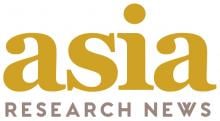
27 Nov 2007
Shanghai, China - This conference is targeted at solving critical issues on bringing together biomedical science innovation with drug developments for emerging markets.

29 Oct 2007
Beijing, China - The Forum meeting of the Global Forum for Health Research has become established as a premier annual event that brings together policy-makers, development partners and the directors and users of research, to debate critical gaps and to mobilize campaigns that address the health needs of the poor and marginalized.

16 Nov 2007
Kuala Lumpur, Malaysia - The theme of this year's event is "Towards Sustainable Medicine & Healthcare".

29 Oct 2007
Beijing, China - The Global Forum's annual meeting provides the opportunity for presentations and exchange of views on key issues on the global health agenda.

29 Oct 2007
Hyderabad, Andhra Pradesh, India - The conference will provide a platform for people with diverse perspectives, expertise and experience to exchange ideas, discuss and debate issues of concern, and learn from each other about sexual and reproductive health and rights.

19 Aug 2007
Colombo, Sri Lanka - ICAAP is a major Asia regional conference that brings together scientific researchers, community activists, health professionals, governments, agency and faith communities representatives in search of more effective strategies and increased political commitment to the problems of the HIV pandemic in the Asia-Pacific region.

10 Sep 2007
Enlarge your network in South-East-Asia and boost your activities in the prevention and care of lifestyle related NCD by joining the Matchmaking Conference 2007 in Bangkok, Thailand, September, 10-11, 2007

21 Nov 2007
Chiang Mai, Thailand - The event aims to provide a forum for scientists, researchers, reprosentatives from the medical and phamaceutical industries to share ideas for future collaboration.

15 Nov 2007
Bangkok, Thailand - The Congress plans to put together a scientific program that will focus on new developments, challenges in PID, state of the art and updates of topics of global interest and regional problems in the Far East.

12 Sep 2007
Bangkok, Thailand - 5,000 trade visitors and buyers from the region are expected to visit the 3-day exhibition. Join us in bringing global and healthcare technologies to one of the most dynamic regions in the world.

17 Aug 2007
Mumbai, India - This program addresses latest trends in European industry standards, and inspection agency demands, in regulatory and quality arenas of sterile manufacture.

12 Sep 2007
Seoul, Korea - The event is one step further and strengthen its impact on the industry based on Korean government plan and efforts.

29 Nov 2007
Kuala Lumpur, Malaysia - AFES unites endocrinologists in Southeast Asia and allows us to effectively tackle the problems, which are unique to our region.

24 Oct 2007
Perth, Australia - The conference program will be broad and cross-disciplinary, aiming to bring together bioscience researchers working on plants, fungi and animals, including humans.

12 Oct 2007
New Delhi, India - The objective of this trade fair is to bring together all those related with the medical & healthcare sector, under one roof.

19 Sep 2007
Hong Kong - This meeting offers a very high-quality scientific programme with a distinguished international and regional faculty from the most prestigious institutions.

13 Sep 2007
Beijing, China - It provides an opportunity for specialists and researchers from China and beyond to exchange the latest scientific & technical achievements and trends in cancer research and oncology drug development.

13 Sep 2007
Bangkok, Thailand - This event offers small and medium-sized companies looking to venture further into the European and Asian Medical Devices Sector the opportunity to establish valuable contact with potential business partners at no cost.

06 Aug 2007
Cuba - The Course´s objective is that participants could debate about the the most relevant and updated aspects of this disease.

03 Dec 2007
This year's theme is "Changing Scenarios in Fungal Research and Innovation". The conference aims at being a platform for mycologists to meet, discuss and share their knowledge and research findings on all aspects of mycology.

23 Aug 2007
The workshop will showcase the successful and viable tissue culture methods that have been developed and how these techniques could be used to generate revenue.

30 Jul 2007
A number of workshops for members of the media are organized yearly by MABIC in West Malaysia. In our efforts to reach out to more journalists, this time round MABIC is organizing a media workshop with the Biotechnology Research Institute (BRI) at Universiti Sabah Malaysia.

13 Aug 2007
To facilitate the development of a science-based regulatory framework that would promote research, development, commercialisation as well as the growth of both local and foreign biotechnology industries in Malaysia
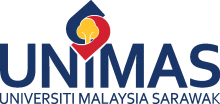
17 Aug 2007
For many children, learning to read seems effortless and is a normal developmental milestone. However, for some children, they have to struggle with what appears to come naturally to others and without proper support, are unable to make sense of the printed word. These children are dyslexic and suffer from dyslexia, a reading disorder.

27 Jul 2007
Chicago, USA - Chinese Health Food and its associated concepts and technologies. It will be an excellent opportunity for the international community to exchange ideas and develop a common vision for the future of Chinese health food.

21 Jul 2007
India - The growth in healthcare is creating new challenges in the adoption of healthcare standards in the emerging healthcare hubs. Four events in different cities aim to bring together all the key healthcare stakeholders.

22 Jul 2007
Sydney, Australia - As the fourth conference in the HIV Pathogenesis, Treatment and Prevention series, IAS 2007 will feature reports on the latest developments in the areas of basic, clinical and prevention science.
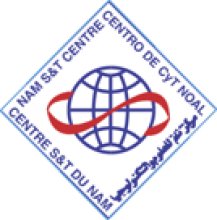
20 Sep 2007
Hanoi, Vietnam - Experts and scientists interested in participating in the Workshop are required to submit their nomination form by 14th August 2007. The selection of the participants will be strictly based on merit and quality of the extended abstracts of the presentation material to be submitted along with the completed Nomination Form.
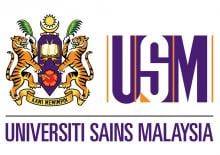
28 Aug 2007
Kelantan, Malaysia - The Third National Workshop on Scientific Writing is purposely
constructed to guide participants to be active and skillful in writing scientific manuscript.
Researchers
Sorry, no researchers coming up for this topic.
- « first
- ‹ previous
- 1
- 2
- 3
- 4
Giants in history
Michiaki Takahashi (17 February 1928 – 16 December 2013) was a Japanese virologist who developed the first chickenpox vaccine.
Irene Ayako Uchida’s (8 April 1917 – 30 July 2013) strides to understand genetic diseases such as Down syndrome paved the way for early screening of chromosomal abnormalities in foetuses.
Baron Kitasato Shibasaburo (29 January 1856 – 13 June 1931) was a Japanese physician and bacteriologist whose work led to a new understanding of preventing and treating tetanus, diphtheria and anthrax.
Maggie Lim (5 January 1913 – November 1995) was a Singaporean physician who promoted family planning and expanded the access to clinics to improve the quality of life for mothers and children in Singapore’s early days.
By isolating soil microorganisms and studying the compounds they produce, Satoshi Omura (born 1935) discovered almost 500 organic compounds with unique properties that were produced by these microorganisms, including many new antibiotics.
The founder of the Adyar Cancer Institute in India, Muthulakshmi Reddy (30 July 1886 – 22 July 1968), fought to uplift women and girls from impoverished situations.
Chinese-American virologist and molecular biologist Flossie Wong-Staal (27 August 1946 – 8 July 2020) was the first scientist to clone HIV and determine the function of its genes.
Maharani Chakravorty (1937 – 2015) was one of India’s earliest molecular biologists whose research paved the way for advances in the treatment of bacterial and viral infections.
Archana Sharma (16 February 1932 - 14 January 2008) conducted research into plant and human genetics that expanded the understanding of both botany and human health. In relation to botany, she uncovered the means by which asexually-reproducing plants evolve into new species.
The first Thai woman to receive a degree in medicine, Margaret Lin Xavier (29 May 1898 – 6 December 1932), is best remembered for her compassion towards her less privileged patients.
In 1915, pathologist Katsusaburo Yamagiwa and his research assistant Koichi Ichikawa became the first to prove that chronic exposure to chemicals can cause cancer.
In 1915, Koichi Ichikawa along with pathologist Katsusaburo Yamagiwa became the first to prove that chronic exposure to chemicals can cause cancer.
Husband and wife team, Kimishige (3 December 1925 – 6 July 2018) and Teruko Ishizaka (28 September 1926 – 4 June 2019) discovered the antibody class Immunoglobulin E (IgE) that triggers allergic reactions. They also discovered that IgE antibodies attach to white blood cells, known as mast cells, releasing histamine, which causes allergic reactions.
Husband and wife team, Kimishige (3 December 1925 – 6 July 2018) and Teruko Ishizaka (28 September 1926 – 4 June 2019) discovered the antibody class Immunoglobulin E (IgE) that triggers allergic reactions. They also discovered that IgE antibodies attach to white blood cells, known as mast cells, releasing histamine, which causes allergic reactions.
Japanese chemist Takamine Jokichi (3 November 1854 – 22 July 1922) founded the Tokyo Artificial Fertilizer Company, where he isolated a starch-digesting enzyme (named takadiastase) from the fungus Aspergillus oryzae.
Ground-breaking cancer researcher Kamal Jayasing Ranadive (8 November 1917 – 11 April 2001) advanced the understanding of the causes of leukaemia, breast cancer and oesophageal cancer through the use of animal models. She was also among the first to recognise how susceptibility to cancer is linked to tumour-causing interactions between hormones and viruses.
The research of Filipino pharmaceutical chemist Luz Oliveros-Belardo (3 November 1906 – 12 December 1999) focussed on essential oils and other chemicals derived from native Philippine plants.
Thai physician and conservationist Boonsong Lekagul (1907 – 1992) made major contributions to the preservation of his country’s wildlife.
Indian scientist and physician Upendranath Brahmachari (19 December 1873–6 February 1946) is best known for creating a drug called Urea Stibamine, used to safely and reliably treat visceral leishmaniasis (or Kala-azar), a severe infection caused by the Leishmania parasite.
Filipino chemist and pharmacist Manuel A. Zamora (29 March 1870 – 9 July 1929) is best remembered for his discovery of the tiki-tiki formula to combat beriberi, a disease caused by Vitamin B1 deficiency.
Korean parasitologist Seung-Yull Cho (16 November 1943 – 27 January 2019) is remembered largely for his pioneering works to control infections caused by helminthic parasites and his contribution to journal publishing.
Fe Villanueva del Mundo (27 November 1911 – 6 August 2011) was a Filipina paediatrician who founded the Philippines’ first paediatric hospital.
After witnessing death and suffering as a youth in his home village during World War II, Nguyễn Tài Thu (6 April 1931 – 14 February 2021) set his sights on alleviating pain by becoming a doctor. After studying Traditional Chinese Medicine in China in the 1950s, Thu returned to Vietnam to serve in military hospitals. Eventually, he became the country’s foremost practitioner of acupuncture, a technique he first learned by inserting needles into himself.
Minoru Shirota (April 23, 1899 – March 10, 1982) was a Japanese microbiologist who invented the popular fermented drink Yakult.
Wu Lien-teh (10 March 1879 – 21 January 1960) was a Malaysian-born doctor who invented a mask that effectively suppressed disease transmission. Winning the prestigious Queen’s Scholarship enabled Wu to become the first Chinese student to study medicine at the University of Cambridge.
David T. Wong (born 1936) is a Hong Kong-born American neuroscientist who is best known for discovering the antidepressant drug fluoxetine, better known as Prozac.
Indian organic chemist Asima Chatterjee (1917 to 2006) studied the medicinal properties of plant products, especially compounds known as vinca alkaloids.
Chika Kuroda (24 March 1884 – 8 November 1968) was a Japanese chemist whose research focussed on the structures of natural pigments.
Umetaro Suzuki (7 April 1874 – 20 September 1943) was a Japanese scientist best remembered for his research on beriberi, a disease caused by vitamin B1 deficiency, characterized by limb stiffness, paralysis and pain.
Salimuzzaman Siddiqui (19 October 1897 – 14 April 1994) was an artist and chemist from Pakistan whose research focused on natural products from plants.
Barry Paw (29 August 1962 – 28 December 2017) was a biologist and oncologist who discovered several novel genes and their functions in red blood cells.
Syed Qasim Mehdi (13 February 1941 – 28 September 2016) was a Pakistani molecular biologist who was a founding member of the Human Genome Diversity Project (HGDP), which assessed human diversity by studying human migration, mutation rates, relationships between different populations, genes involved in height and selective pressure.
Tsai-Fan Yu (1911 – 2 March 2007) was a Chinese-American physician and researcher who was the first female full professor at Mount Sinai School of Medicine. She discovered that gout, a condition characterized by the painful inflammation of joints, was caused by elevated levels of uric acid in the bloodstream.
Min Chueh Chang (10 October 1908 – 5 June 1991) was a Chinese-American biologist who studied fertilization in mammalian reproduction.
A Japanese surgeon, Tetsuzo Akutsu (20 August 1922 – 9 August 2007) built the first artificial heart capable of keeping an animal alive.
Ogino Ginko (3 March 1851 – 23 June 1913) was the first registered female doctor to practise modern medicine in Japan.
Esther Park (1877-1910), born Kim Jeom-dong, was the first female Korean physician to practise modern medicine in Korea and trained the first generation of Korean female doctors.


